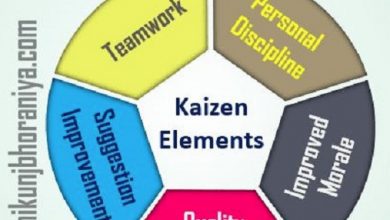Behavioral Training its importance Benefits and implementation and development
Behavioral Training
Behavioral training develops socialization and self-knowledge skills in a company’s employees with the aim of improving the organizational climate and increasing productivity.
To remain competitive in the current market, employee behavioral training is an essential practice. After all, the companies that have the most qualified workforce come out ahead .
When we talk about qualification, it is normal that hard skills, which are technical knowledge, immediately come to mind.
However, social interaction within the company is also important — and regardless of the number of employees, communication is paramount.
Therefore, in this article we will deal with the development of interpersonal relationships in the business environment with the aim of improving communication and developing emotional intelligence .
What is behavioral training and why is it important?
Behavioral training is a process by which the socialization and interpersonal relationship skills of an organization’s employees are improved.
Some of the issues that fuel the changes in the HR sector and drive trends for the coming years are closely linked to the human resources available — employees.
There is a huge expectation for individuals within a corporation to be able to collaborate effectively with each other.
Despite this need, getting people with often heterogeneous personalities to blend in is not easy and requires a lot of effort.
Despite this, a heterogeneous team is far more desirable than like-minded people with similar histories.
After all, only with different people is it possible to have different points of view .
But how do you get these completely different people to work together effectively?
Through communication skills and life in society. Contrary to what many think, not everyone brings this social intelligence from home, and this is precisely where behavioral training comes in.
1-Teams working together and market competition
From a business perspective, human capital that cannot work together to solve problems is somehow inert.
Teamwork is the competitive differentiator of successful organizations, a key point for any company.
In a globalized economy, we need to be able to face several challenges, and several heads are much better than one, as the saying goes.
We need to foster a smart, agile, entrepreneurial and risk-taking workforce to excel .
The various behavioral trainings allow the development of social skills and represent a precious investment.
Especially in large companies that depend almost exclusively on the effective communication skills of their employees.
2-Is behavioral training conditioning?
Something that can generate resistance from employees during behavioral training is the idea that it is “brainwashing” or conditioning.
This is a completely valid concern, after all, the company that trains is not impartial and has an agenda behind this investment.
Not only that, training is done according to the company’s organizational culture .
In this sense, it is up to the HR sector to calm these thoughts and convey the real objective behind behavioral training:
It should be explained that the objective is to make the employee know how to process their emotions in a healthy and balanced way in the work environment and offer support during their journey within the company.
Benefits of behavioral training
Now that you have a better understanding of what behavioral training is, let’s get into the benefits it brings to the company and to the employees themselves. Follow up!
1-Developing more professional habits
Anyone who’s ever tried to develop a healthy habit knows that it’s not easy. Professional habits follow the same logic.
In this way, behavioral training is a great way to demonstrate what a professional posture is and encourage this behavior.
More professional habits are one of the great motivators of this type of training and converge to the other benefits of this strategy. Behavioral Training
2-Self knowledge
Self-knowledge is the basis for emotional intelligence, after all, it is necessary to understand your own patterns and emotions to do something about it.
A very clear example of this is an individual who has a quick temper.
This employee is usually the source of several problems of coexistence within the company.
However, from the moment he recognizes his own pattern of behavior, he has power over his actions.
So, instead of “exploding” when confronting another employee, you can opt for a more constructive path.
But self-knowledge goes beyond that. For example, the employee may find that they tend to procrastinate a lot and move major distractions elsewhere.
3-Improvement in the organizational climate
The organizational climate is dependent on effective communication. There is nowhere to run, if employees are not able to exchange information and feedback without generating friction, the climate weighs and everyone loses with it.
Efficient conflict resolution is also another point that benefits the company’s climate.
Dissolving silly conflicts through conversation and tolerating differences is paramount for any team to function well.
4-Motivation through the appreciation of the professional
Think that you work at a company that is always giving you the opportunity to improve personally and professionally.
Surely one of the feelings that arise is that of complete appreciation, isn’t it?
With appreciation and possibilities, naturally comes motivation . Several companies talk and talk about the importance of motivating employees, however, few invest in training and courses.
Here, both the company and the employees gain due to the increase in natural productivity and greater happiness in working.
5-Strengthening teamwork and improving communication
Teamwork depends on good communication among its members . Making a team capable and efficient is not an easy task, on the contrary, it requires hours of conversation, courses and training.
Therefore, a team that can communicate in an open, clear and objective way makes the quality of the work delivered much higher and, therefore, the company is much more successful.
6-Reduction in turnover
With all these benefits brought by behavioral training, the turnover rate tends to decrease significantly.
Employees tend to want to stay in companies that nurture a teamwork climate and invest in the personal and professional development of their employees. Behavioral Training
By itself, talent retention is already a great reason to invest in the continuous improvement of everyone in the company.
The 5 main behavioral training to apply in your company
There are several skills that employees can develop to stand out in the company and live in a more friendly and efficient way.
So, here are some ideas that you can take to your company and improve the organizational climate.
1. Interpersonal communication skills
One of the most important aspects of any company is communication. Without it, information stagnates, processes create bottlenecks and employees cannot improve their work.
It is necessary to communicate to plan strategies, serve customers, delegate tasks, negotiate deadlines, pass feedback and much more.
Communicating goes far beyond issuing information, it is necessary to respect divergent opinions and have a posture consistent with the corporate environment.
This is a necessary ingredient for high-performing companies that deliver an unparalleled customer experience.
2. Emotional intelligence
Emotional intelligence translates an individual’s ability to understand their own feelings in order to develop some pillars, such as:
- self -responsibility : ability to take responsibility for what happens in your life;
- understanding of emotions : perception of one’s own feelings and of the people around them;
- managing emotions : science of emotional responsibility;
- Attitude : You have the ability to take actions to better manage your emotions.
Having a collaborator with all these characteristics is something very rare. This is because emotional intelligence is not a widely taught subject in our society, so there is nothing better than developing it within the company itself.
3. Leadership training
Contrary to what many think, people are not born leaders. Even those people who don’t see themselves that way can develop the ability to lead effectively.
This training is very important, after all, who has never had that boss who didn’t know very well what he was doing and took out his frustrations on his employees?
Leaders must be inspiring, have a holistic view of the team and its importance to the company’s goals and still know how to communicate their ideas and expectations.
Apparently not a very easy task, is it? But nothing that cannot flourish through training and capacity building policies .
4. Time Management
Whether viewed favorably or not, a company wants its employees to be productive and to know how to use their time effectively.
This can be a real problem in the company’s productivity, as few professionals, in their training, learn how to do this.
We are always focusing on technical knowledge and leaving soft skills aside.
By empowering the individual to manage his own time, he will use this knowledge to plan strategically, identify where he has wasted time and what he can do to change it.
Not only that, it’s a great way to exemplify what procrastination is and present a concept of productivity that falls short of what the corporation expects.
5. How to speak well in public
Public speaking is something quite common in any company, whether in meetings, presentations or even lectures.
Thus, public speaking security is a more than necessary skill to succeed in the business world.
Training to minimize the fear of public speaking or even shyness is essential. Plus, of course, lots of practice!
Training can come in here to teach you how to create engaging presentations and also to master feelings of insecurity.
How to develop behavioral training with employees
Before starting behavioral training with employees, it is important to have a clear idea of what you want to achieve with the actions.
To help you in this endeavor, we leave you step by step on how to effectively plan behavioral training.
1-Know the profile of your collaborators
It is important to have a deep understanding of who your employees are in order to offer more coherent behavioral training topics.
Some training should still be given to all employees in order to disseminate the organizational culture, for example.
When it comes to more specific problems, training is interesting in order to solve such problems.
The identification of profiles can be done through questionnaires, interviews and even group dynamics.
It is at this point that the features that need to be improved are identified.
Some examples are: lack of punctuality or low attendance , lack of organization, short temper, etc.
2-Choose methods and procedures
Identified what needs to be improved? Perfect, it is now possible to plan further actions in order to correct these issues.
For this you will have to take into account the following items:
- the content that will be taught;
- the training instructor;
- the place where it will take place;
- whether it will be distance, face-to-face or hybrid;
- the required workload.
3-Apply the training and measure the results
Every action within a company must be measured. Therefore, if the objective of behavioral training is to decrease procrastination, the expected result is an increase in productivity.
It is necessary for the HR team to look for the necessary tools to evaluate the effects of the training and then make adjustments to optimize the results.
4-Do it all in advance
Training does not start when the speaker arrives at the company. It is important to identify everything that will be needed to plan the action and measure its effectiveness.




